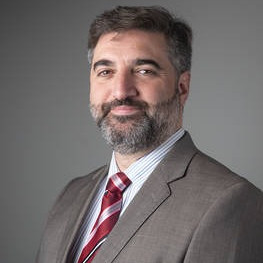Tiago Masrour
Biography Narrative
Director and Treasurer, ADIR
Tiago Masrour was senior project manager for the Bahá’í House of Worship of South America until its completion in 2016, in Santiago, Chile. He is currently dividing his time between business management at an IT firm, promoting spiritual education, particularly among youth, studying online for a masters in global technology and development at Arizona State University and his family.
Masrour has focused on interreligious efforts since his appointment to the Interreligious Council of the Chilean government, between 2015 and 2018, and then helped the founding of the Interreligious Dialogue Association for Human Development of Chile. Over the past decade he has collaborated with diverse religious communities, governmental agencies and civil society to promote the defense of human and religious rights and the advancement of universal peace.
He is interested in learning from others and sharing experiences, discovering inspiring efforts and encouraging young people to be more conscientious and involved.
Interreligious Activities and Initiatives
IRD From a Youth Perspective
Bringing together youth from three distinct religious backgrounds into dialogue, this initiative aimed at facilitating a series of encounters that would allow them to get to know each other, learn about one another, and share their perceptions about religion, society, and its interactions. Starting with a general introduction on general concepts on interreligious dialogue, its principles, and basic rules, it invited the youth to get to know and present each other, and then to play an adapted online version of Dialogo. In the follow-up session, three central questions centered on learning about other religions, its role in society, and their perceptions on its roles in their lives and communities were explored in small groups and shared in plenary. Three sessions were then dedicated to visiting virtually places of worship of each religion, establishing an open dialogue between all. A concluding plenary session took place to reflect on the experience and their desire to continue participating as well as getting together to serve. Finally, a series of one-on-one interviews were set up to collect their impressions.

